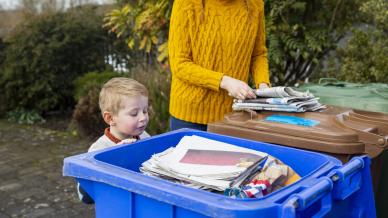To support this year’s theme, perhaps you may want to consider some or all the following actions and help make a difference one day at a time.
1. Climate change
Climate change is a huge problem affecting our planet. It causes rising temperatures, melting ice caps, and global warming. To fight climate change, raise your voice, not the sea level by:
- Reducing carbon emissions: Use renewable energy sources like wind, solar, and hydropower. Drive electric vehicles and use public transportation.
- Promoting energy efficiency: Save energy at home and work. Support policies that improve energy efficiency.
- Advocate for climate policies: Support laws that reduce carbon footprints and invest in green technologies.
2. Biodiversity loss
Biodiversity is all about having healthy ecosystems and human wellbeing. Many species are on the decline because of habitat destruction, pollution, and overuse. To protect biodiversity:
- Conserve natural habitats: Support national parks such as the National Trust and wildlife reserves.
- Combat poaching and illegal trade: Help strengthen laws against wildlife trafficking and support conservation efforts.
- Restore degraded ecosystems: Join reforestation and habitat restoration projects to bring back native species.

3. Plastic pollution
Plastic pollution is an ongoing issue, harming marine life and ecosystems. To tackle plastic pollution, we can:
- Reduce single-use plastics: Use reusable bags, bottles, and containers.
- Improve waste management: Advocate for better recycling facilities and waste management systems around your local community.
- Promote alternatives: Use biodegradable and eco-friendly alternatives to traditional plastics.
4. Water scarcity
Water shortage affects millions of people and is worsened by climate change, pollution, and overuse. Try to avoid water shortage by:
- Conserving water: Use water-saving practices in daily life.
- Protect water sources: Prevent pollution of rivers, lakes, and aquifers by regulating industrial discharges and promoting sustainable agriculture.
- Support water projects: Invest in infrastructure and technologies to improve water access and quality, especially in underserved areas
5. Air pollution
Air pollution poses major health risks, causing respiratory diseases and contributing to climate change. To reduce air pollution:
- Promote clean energy: Move from fossil fuels to renewable energy sources. Use clean cooking technologies.
- Regulate emissions: Support policies that limit industrial emissions and promote cleaner production processes.
- Increase green spaces: Plant trees and create urban green spaces to absorb pollutants and improve air quality.
As always, small actions from everyone can collectively contribute significantly to positive environmental impacts. Let’s work together and restore our land, be sustainable and have a secure future.
The WEA's green curriculum aims to teach and inspire people to work towards a sustainable future, as the UN Environment Day encourages. They cover the science of climate change, how to handle environmental issues, and topics like permaculture and organic methods.
Explore which WEA course you can join to widen your knowledge.












